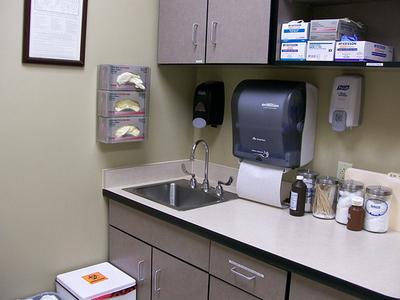Visiting a Doctor for kids
by Kevin Murphy
(Frankston, Australia)
Going to the doctor and dentists could be frightening not only for kids, but also for lots of parents. What to tell your kids about visiting a doctor?
Particularly when they are very young, the process of being poked, prodded and seemingly manhandled by a stranger that occasionally jabs them with needles is understandably disturbing. It may not be possible to entirely alleviate your child’s anxiety but if handled correctly at least some of the grief can be mitigated.
Be Calm:
Kids tend to take cues from their parents. Be sure that your anxiety regarding their trip to doctor isn't frightening your child by proxy.
• Remain natural, calm and matter of fact about the visit.
• Talk about it like you would anything other errand.
• Don’t dodge questions but do your best to limit discussion of the appointment beforehand.
The more something potentially upsetting is talked about, the more it’s thought about. Just like adults, kids can psyche themselves out.
Be Honest:
One of the worst mistakes a parent can make is attempting to buy their child a false, temporary window of calm by lying about the nature of the visit.
If you know vaccinations or booster shots are on the agenda, tell them so when the topic is being discussed before visiting a doctor. If a child gets a shot after being told otherwise they will resent the parents, mistrust the doctor and their fear of the next visit will be amplified.
Discuss likely unpleasant experiences associated with visiting a doctor
• Discuss shots with no more or less weight than any other part of their appointment and don’t deny that they’ll hurt.
• Explain that a shot is like a pinch that’s over quickly and is a necessary part of keeping them strong and healthy- it’s a lot better than getting sick.
• Never use the threat of shots as a punishment.
Giving your child the impression that they are being punished with a shot is an excellent way to increase the difficulty of every doctor visit significantly.
Role play it:
Involve kids in the process beforehand: Buy a set of toy doctor’s instruments and join your little one in playing with them. At doctor's clinic, even checking the body temperature is terrifying experience for a child.
Therefore, try your best to give your kids an overview of the entire process; eyes, ears, nose and throat exam; temperature check; knee-tap; and even genital examination - Don't miss this opportunity to explain that only they themselves, a parent, doctor or a nurse is allowed to check their private area.
Chronic Care:
The routine can be different for kids dealing with a persistent condition or an injury that requires visiting a doctor frequently.
Children suffering from prolonged ill health do not suffer from fear of the unknown, but are concerned over repeated treatment and the variations in therapies offered. They even suffer from a feeling of guilt.
Helping a child deal with continued painful treatments is one of the most difficult ordeals a parent faces. Sometimes the best that can be done is assuring the child undergoing the treatment that as uncomfortable as it is, they are getting better because of it.
The guilt feeling:
As for the guilt, many children tend to blame themselves for medical issues, convinced they have done something wrong and either brought it on themselves or are being punished.
Without the adult benefit of experience for comparison, kids can feel shame and embarrassment dealing with a malady none of their peers suffer from.
Ensure them that there is nothing strange or abnormal about their illness and that it is absolutely not their fault. Of course, if they are recovering from an injury or illness that has somehow resulted from a mistake made by the child, remind them that everyone makes mistakes and that hopefully they've learned from theirs!
After-Visit Reward:
Consider rewarding your little one for a successful visit with ice cream or a movie. However, avoid saying something like, “If you’re brave, we’ll get ice cream after you see the doctor!” Conditions like that can increase a child’s anxiety and lead to distressed disappointment if your little one is scared by the visit, cries after receiving a shot, etc., leading to feelings of failure and fear of not getting their reward.
Click here to read or post comments
Liked what you read just now? Pay it forward!










